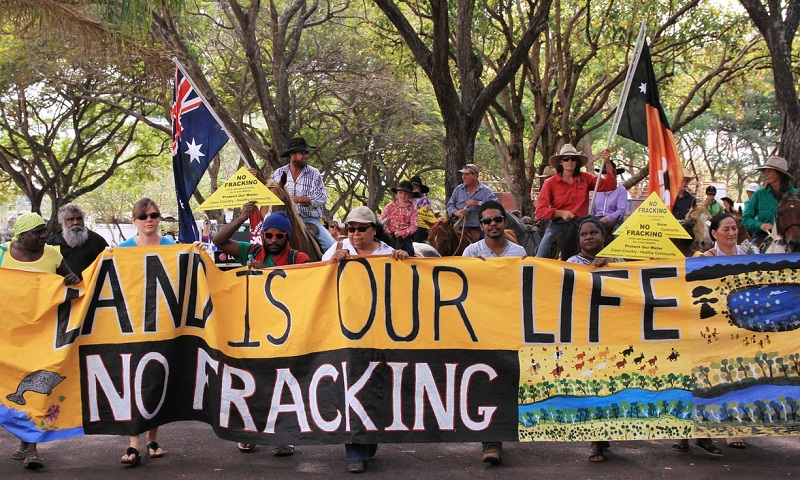Fracking: report warns of risks associated with shale gas extraction

Report suggests surface water and groundwater should not be used in some instances and warns against fracking during wet season. Residents, environmentalists and pastoralists have welcomed a “balanced” report on fracking in the Northern Territory, which identified a number of risks associated with the industry and a loss of community trust. The NT government enacted a moratorium on hydraulic fracturing in the NT when it took office in August, establishing an inquiry to examine if it could be done safely, following concerted campaigning by Indigenous land owners, pastoralists and environmentalists. The NT is estimated to have more than one-third of Australia’s shale gas resources, 70% of which are found in the Beetaloo sub-basin. The site has received about half of the $505m of exploration investment since 2010 and is the main target for future development. The interim report from the inquiry, run by a panel of experts, said its “preliminary view” was that the use of surface water for shale gas operations should be prohibited in arid and semi arid areas. Groundwater should not be permitted for use in fracking without proof there would be no adverse impacts, it said, and fracking during the Top End’s wet season should not be allowed at all because of the potential for storage ponds to overflow. The report noted most national parks, reserves and areas of high conservation were not currently “no go zones” and could be subject to petroleum exploration permits applications. The panel said it would consider the risks a shale gas industry may have on those areas, as well as residential areas, agricultural land, sacred sites and tourism icons should be excluded from potential fracking wells. The report also identified several land-related risks, including detracting from iconic landscapes, damage to biodiversity and habitat loss, spreading weeds and changing fire regimes, as well as potential risks to public health including contamination of aquifers and airborne chemicals. The inquiry found there was community concern about environmental damage and disruptions to Aboriginal cultural traditions from fracking. It also acknowledged proponents who argued fracking could bring jobs and much-needed revenue to the faltering economy if regulated and safeguarded but warned there were concerns about equitable royalties distribution and the long-term sustainability of shale gas industry jobs.

